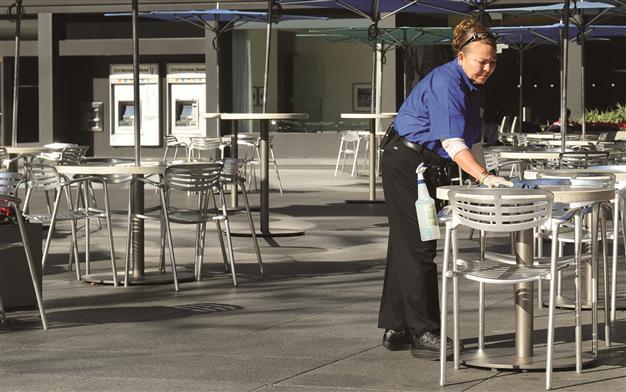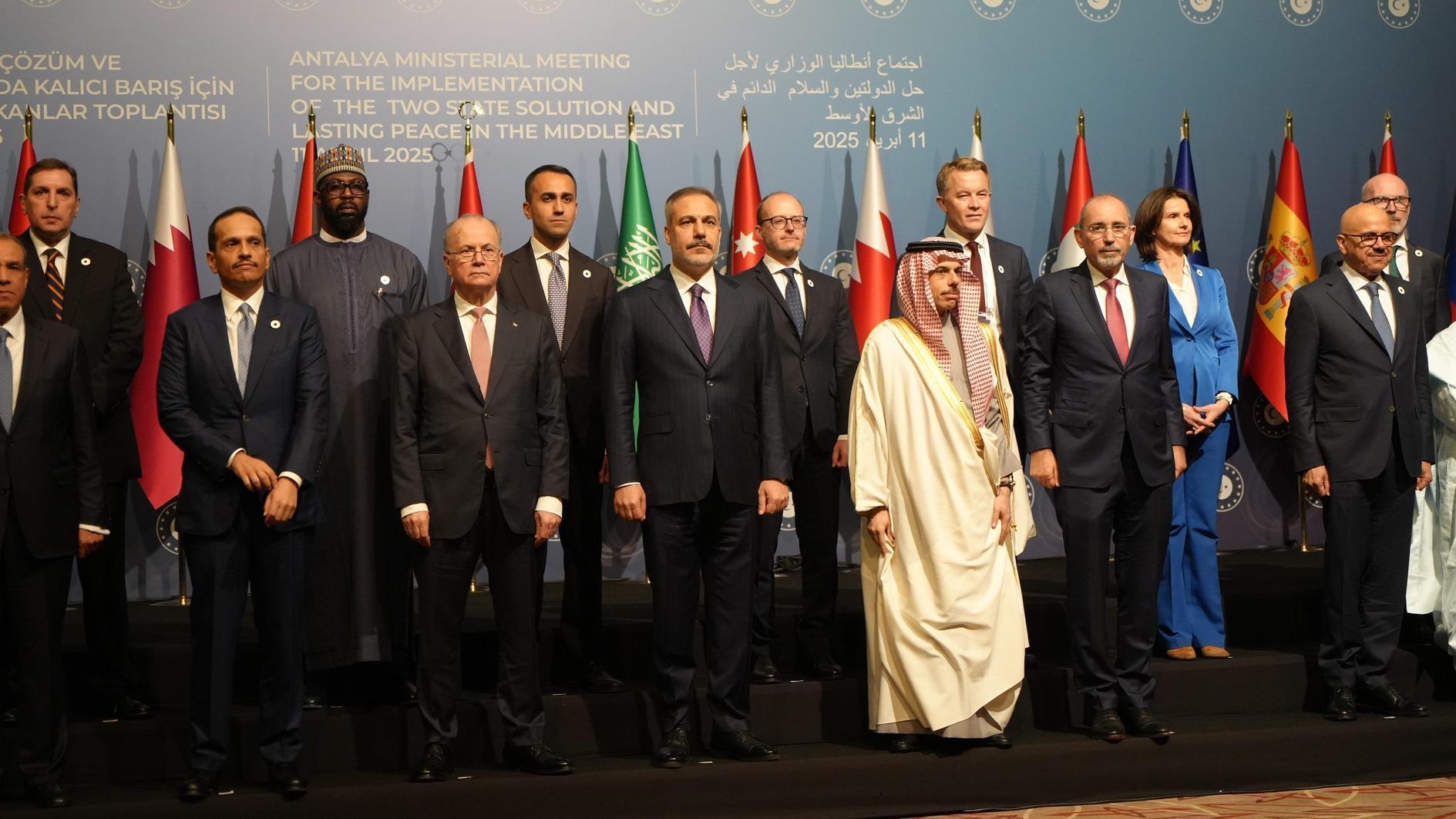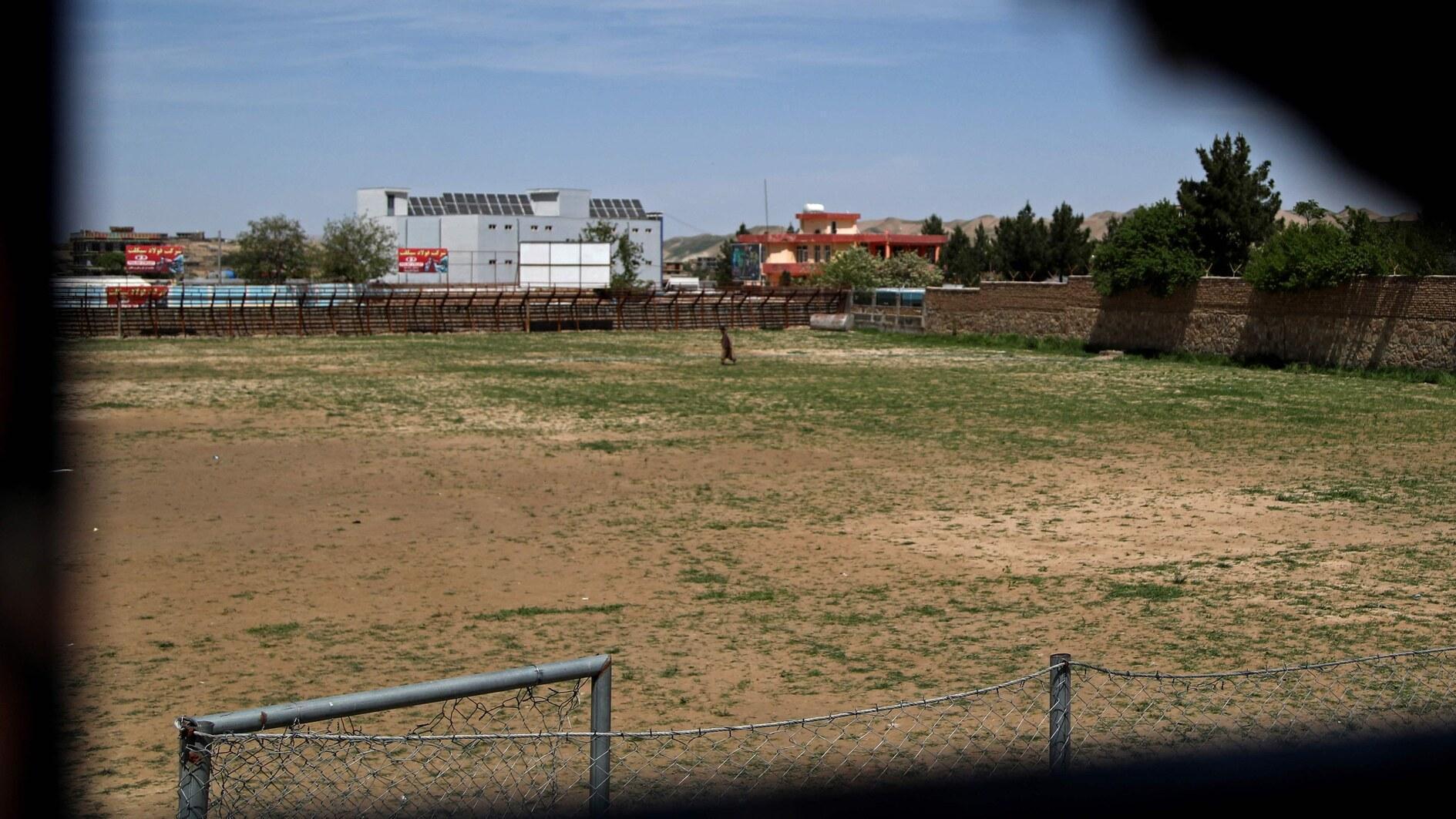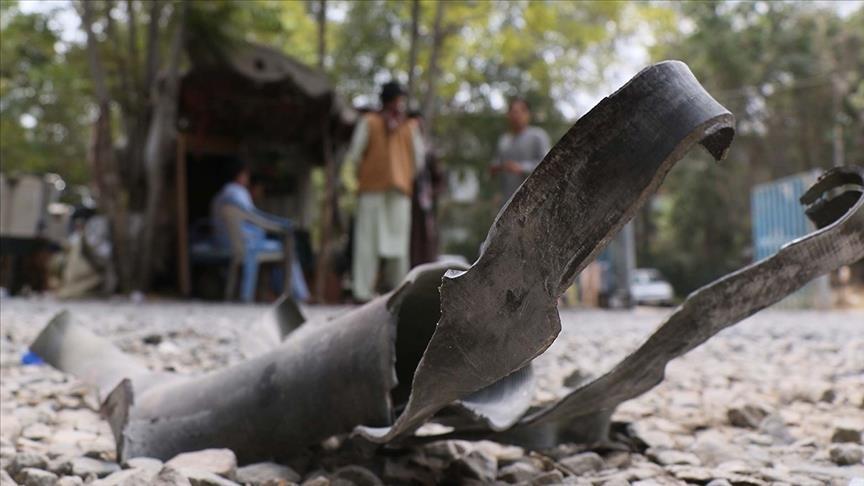Obama’s bid to raise minimum wage sparks clash of ideas
WASHINGTON - Agence France-Presse

A worker wipes tabletops at an outdoor plaza in Los Angeles. AFP photo
President Barack Obama’s pledge to raise the minimum wage by 24 percent has divided economists and businesses who warn it could threaten recent improvements in jobless numbers.Obama has stated that his administration plans to increase the existing minimum hourly rate from $7.25 to $9, vowing to press ahead with the initiative despite the sequester budget crisis.
“There are other areas where we can still make progress even with the sequester unresolved,” Obama said, referring to $85 billion of drastic budget cuts that went into effect on March 1.
Unlike other developed nations such as France, where the minimum wage is indexed to inflation and adjusted automatically each year, the rate in the United States often remains unchanged for years at a time.
The last increase, to the current level of $7.25 an hour, was introduced nearly four years ago in July 2009.
“Taking action on the minimum wage is long overdue,” US Deputy Labor Secretary Seth Harris told AFP.
The United States has one of the lowest minimum wages of major industrial nations.
According to figures from the International Labor Organization, the US is only 38 percent of the median wage, compared with 46 percent in Britain and 60 percent in France.
Proposals to increase the minimum wage are broadly popular, with 71 percent of people backing the move, according to a Gallup poll.
But other economists and business groups are sharply divided over the proposals.
The US Chamber of Commerce has argued the burden of any increase will be felt most by small businesses.
“Accordingly, the US Chamber continues to oppose increases in the minimum wage and believes that any increase must be coupled with provisions that recognize the impact this will have on small businesses.” Michael Saltsman, research director at the conservative Employment Policies Institute, questioned whether a wage increase could be effective.
But Ioana Marinescu, an economist at the University of Chicago Harris School of Public Policy Studies was adamant that an increased minimum wage will “boost consumption” without adversely affecting businesses.
“Underpaid employees will often eventually find a better paid job elsewhere,” she said.
















